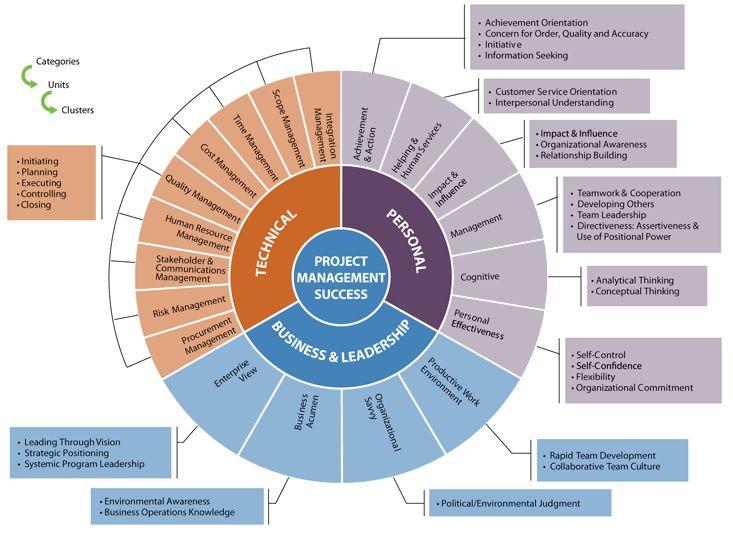Have you ever wondered if project management plays a crucial role in the success of a new information system? Imagine investing time, money, and resources into a state-of-the-art system, only to see it fail because of poor planning or execution.
It’s a nightmare scenario, isn’t it? The truth is, the way you manage a project can make or break your information system’s success. This isn’t just about charts and timelines; it’s about ensuring every piece of the puzzle fits perfectly.
As you dive deeper into this article, you’ll discover how effective project management can be your secret weapon for seamless implementation and long-term success. Get ready to unlock the strategies that can elevate your new system from a potential flop to a game-changing success.
Role Of Project Management In Information Systems
Project management plays a vital role in the success of a new information system. Clear planning and efficient resource allocation ensure smoother implementation. Effective communication among team members fosters collaboration, reducing risks and delays.
Project management plays a crucial role in the success of information systems. It provides the structure necessary to guide a project from inception to completion. Without effective project management, even the most advanced information systems can fail to deliver on their promises.
Understanding The Basics
Project management involves planning, organizing, and managing resources to achieve specific goals. In the context of information systems, this means ensuring that every aspect of the project aligns with business objectives. You might be surprised at how often projects derail because of inadequate planning.
Clear Goals And Objectives
Establishing clear goals is essential for any successful project. In information systems, this means defining what success looks like and how to measure it. Without clear objectives, teams can lose focus, wasting time and resources.
Efficient Resource Allocation
Managing resources effectively is critical. This includes time, budget, and human resources. If resources aren’t allocated wisely, you might find your project running over budget or missing deadlines.
Risk Management
Every project carries risks. Identifying these risks early can save you from headaches later. Effective project management involves anticipating potential issues and developing strategies to mitigate them.
Communication And Collaboration
Good communication can make or break a project. Ensuring that all team members are on the same page helps prevent misunderstandings. Regular updates and open channels for feedback are crucial.
Monitoring And Evaluation
Once an information system is in place, monitoring its performance is essential. Are the goals being met? Is the system delivering the expected benefits? Regular evaluation helps keep the project aligned with its objectives.
Adapting To Change
Change is inevitable in any project. The ability to adapt quickly can determine the success of an information system. Flexibility in project management allows for adjustments that keep the project on track.
Personal Insights
From my experience, the most successful information systems projects are those where project managers actively engage with their teams. Once, during a critical phase, our project manager encouraged open dialogue, leading to a breakthrough solution. This level of involvement can be the difference between success and failure.
In what ways have you seen project management impact the success of an information system in your own experience?

Credit: www.exin.com
Components Of Effective Project Management
Effective project management is crucial for new information systems. It ensures smooth execution and timely delivery. With the right components, project management can significantly impact success. These components include planning, resource allocation, and risk management.
Planning And Scheduling
Planning sets the foundation for project success. It involves defining goals and objectives. Scheduling organizes tasks and timelines. This helps teams stay focused and on track. A detailed plan avoids confusion and delays. Proper scheduling increases efficiency.
Resource Allocation
Resource allocation ensures optimal use of available resources. It involves assigning tasks and responsibilities. This includes managing human, financial, and technical resources. Balanced allocation prevents overloading team members. It maximizes productivity and minimizes waste.
Risk Management
Risk management identifies potential challenges and threats. It prepares the team for unexpected issues. This involves analyzing risks and developing mitigation strategies. Proper risk management reduces project disruptions. It improves the chances of success.
Key Metrics For Success
Understanding the impact of project management on a new information system is crucial. Key metrics help determine success. They guide project managers in evaluating performance. Focus on three essential metrics: time efficiency, budget adherence, and quality assurance. Each metric plays a vital role in the project’s outcome. Let’s explore how they contribute to success.
Time Efficiency
Time efficiency measures how well a project sticks to its schedule. A project that finishes on time boosts confidence. It shows effective planning and coordination. Delays can lead to increased costs and frustration. Timely completion ensures resources are well-utilized. It minimizes disruptions and keeps stakeholders satisfied. Monitoring time efficiency helps identify potential issues early.
Budget Adherence
Budget adherence focuses on cost control. Staying within budget prevents financial strain. It reflects responsible management of resources. Projects often face unexpected expenses. Consistent monitoring of costs is necessary. It helps maintain financial stability. Budget adherence builds trust with investors. It assures them of a project’s viability.
Quality Assurance
Quality assurance ensures the information system meets set standards. A high-quality system improves user satisfaction. Poor quality can lead to errors and inefficiencies. Regular testing is essential for maintaining quality. It identifies flaws early and allows for corrections. Quality assurance boosts reliability and performance. It ensures the system fulfills its intended purpose.
Challenges In Project Management
Challenges in project management can significantly impact the success of a new information system. These challenges often determine whether a project will meet its objectives or fall short. Understanding these hurdles is crucial for any project manager aiming for success. Let’s explore some common challenges in project management.
Communication Barriers
Effective communication is the backbone of any successful project. Yet, it’s often riddled with barriers such as language differences, technological issues, or even time zone differences. Imagine a team spread across the globe, each member waiting for instructions that are lost in translation or buried in a sea of emails.
It’s essential to establish clear communication channels and regular updates. Encourage open dialogue and use tools that facilitate real-time interaction. Have you ever felt misunderstood or left out of a conversation? That’s what communication barriers do to a project.
Scope Creep
Scope creep is the silent project killer. It starts with a tiny, seemingly harmless request that snowballs into a project overload. Suddenly, you’re juggling more tasks than planned, and deadlines are slipping away.
To manage scope creep, define project boundaries from the start. Regularly review and adjust the scope with your team. Have you ever been in a situation where additional tasks kept piling up? That’s scope creep at work.
Stakeholder Alignment
Getting all stakeholders on the same page can be a daunting task. Different priorities and expectations can pull a project in conflicting directions. It’s like trying to steer a ship with multiple captains, each with their own course.
To ensure alignment, involve stakeholders early and keep them engaged. Use visual aids and clear reports to communicate progress. Have you considered how differing stakeholder goals might affect your project?
Addressing these challenges head-on can greatly enhance the likelihood of your project’s success. Reflect on your experiences with these challenges and consider what strategies you can implement to overcome them. Your approach to these issues can make or break the success of a new information system.
Influence Of Project Managers
Project managers are the backbone of successful information systems. Their influence can determine the trajectory of a project. They steer the team, manage resources, and ensure deadlines are met. Without effective project managers, a project can easily veer off course. Their leadership and guidance are crucial for achieving desired outcomes. Let’s delve deeper into how their skills impact the success of a new information system.
Leadership Skills
Strong leadership skills are vital for project managers. They set the vision for the team. Good leaders inspire and motivate their team members. They create a clear path for everyone to follow. This ensures everyone understands their role and responsibilities. Effective leaders foster a collaborative environment. This teamwork drives the project toward success.
Decision-making Abilities
Project managers must make smart decisions quickly. These decisions can affect the entire project. They must assess risks and choose the best course of action. Good decision-makers anticipate challenges before they arise. This proactive approach helps avoid potential roadblocks. Their ability to make informed choices is essential for project success.
Team Motivation
Motivating the team is crucial for project managers. A motivated team works more efficiently. Project managers use various strategies to keep morale high. They recognize achievements and provide constructive feedback. This encouragement fosters a positive work environment. A motivated team is more likely to meet project goals and deadlines.

Credit: www.yandex.com
Case Studies Of Success And Failure
Project management plays a critical role in new information systems. Successful and failed projects offer valuable lessons. Case studies show how management impacts outcomes. Effective strategies lead to success. Poor planning results in failure.
Successful Implementation Examples
One notable success story is NASA’s Mars Rover project. Strong project management ensured timely completion and launch. Teams followed strict schedules and budgets. Clear communication and defined goals were key.
Another example is Amazon’s migration to the cloud. The project saved costs and increased efficiency. Detailed planning and execution were essential. Teams adapted quickly to challenges. The result was a smooth transition.
Lessons From Unsuccessful Projects
The Denver Airport baggage system faced major setbacks. Lack of coordination and oversight led to delays. The system never functioned properly. Poor risk management was a major issue.
Another failure was the FBI’s Virtual Case File project. It suffered from unclear goals and shifting requirements. The budget spiraled out of control. The project was eventually abandoned. Lessons learned include the need for clear objectives.
Future Trends In Project Management
The landscape of project management is evolving rapidly. New trends are shaping how projects are managed. These trends can significantly impact the success of new information systems. Staying updated with these trends is crucial for project managers. It ensures they can effectively lead their teams.
Agile Methodologies
Agile methodologies are gaining popularity in project management. They focus on flexibility and adaptability. Agile methods help teams respond to changes quickly. This approach is especially useful in tech projects. Teams can deliver parts of the project in small, manageable increments. This allows for continuous feedback and improvement. Agile methods reduce risks and improve project outcomes.
Technological Innovations
Technological innovations are transforming project management. Tools like AI and machine learning enhance decision-making. They provide valuable insights and automate routine tasks. Project management software is becoming more advanced. These tools offer real-time tracking and reporting. They improve communication and collaboration among team members. Adopting these innovations can lead to successful project outcomes.

Credit: www.yandex.edu
Frequently Asked Questions
How Does Project Management Impact The Success Of A New Information System?
Effective project management ensures timely delivery, budget adherence, and quality control for new information systems. It aligns team efforts and mitigates risks, enhancing system performance and user satisfaction. Proper coordination fosters innovation, meeting organizational goals and boosting overall success.
What Is The Role Of Project Management Information System?
A Project Management Information System (PMIS) organizes project data, aids planning, and tracks progress efficiently. It enhances collaboration, resource management, and decision-making. PMIS tools streamline workflow, reduce errors, and ensure timely project delivery, boosting overall productivity and success.
What Is The Impact Of Project Management In Achieving Project Success?
Effective project management boosts project success by ensuring efficient planning, execution, and monitoring. It enhances team collaboration, manages resources, and mitigates risks. Clear objectives and timelines are maintained, leading to improved productivity and goal achievement. Proper project management ensures projects are completed on time and within budget, maximizing overall success.
What Are The Major Factors That Project Management For Information Systems Must Deal With?
Project management for information systems must tackle scope management, time constraints, cost control, quality assurance, and risk management. Stakeholder communication and team collaboration are also crucial. Adapting to technological changes and ensuring data security remain vital. Effective leadership and resource allocation help achieve project success.
Conclusion
Effective project management boosts information system success. Planning is key. Clear goals guide teams. Resources must be allocated wisely. Communication drives progress. Every task needs monitoring. Problems must be solved quickly. Feedback helps improvement. Success relies on teamwork. Poor management leads to failure.
Efficient methods save time and cost. Organized projects enhance results. Information systems thrive under strong leadership. Managers must adapt to changes. Flexibility is crucial. Good management practices ensure project completion. Keep focused on objectives. Implement strategies that work. Success is attainable with the right approach.

